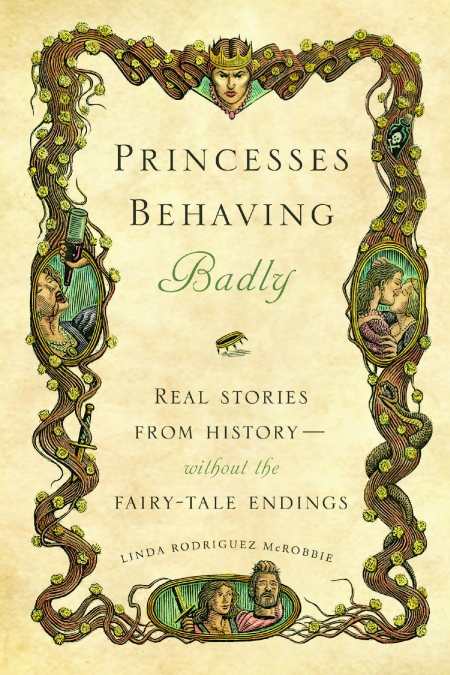Princesses Behaving Badly
Real Stories from History---without the Fairy-Tale Endings
With a light tone, McRobbie details the eccentricities of rebellious princesses in these juicy historical chronicles.
Every girl dreams of becoming a princess, but not like the ones in Linda Rodriguez McRobbie’s Princesses Behaving Badly, which chronicles the weird and often unsavory facts behind some of history’s strangest and most egregious examples of royalty.
The book is divided into sections of “warriors,” “usurpers,” “schemers,” “survivors,” “partiers,” “floozies,” and “madwomen,” and there are noteworthy examples of each. Some of the women McRobbie profiles are well known, such as Marie Antoinette and Anne Boleyn, but what makes the book worth reading is the plethora of stories of lesser-known princess, like Hatshepsut, “the Princess Who Ruled Egypt as a King,” and Roxolana, “the Princess Who Went from Sex Slave to Sultana.” The profiles are kept short and snarky, as when McRobbie tells the tale of the British Princess Margaret and her husband, Antony Armstrong-Jones: “The marriage worked, for a while. Tony and Margaret made friends with all kinds of swinging sixties types: comedian Peter Sellers, writer Gore Vidal, designer Mary Quant, the Aga Khan. They partied with booze (her) and pills (him), and they had a lot of sex. Just not always with each other.”
The tone is light and quick, which reduces the effectiveness of the occasional tug-on-the-heartstrings story but makes palatable the eccentricities of a number of mostly historically inconsequential princesses. With facts and folklore occasionally meeting in the middle, this is history-as-entertainment, though McRobbie does clearly indicate when she’s gone off the historical path and into the realm of less reliable information.
McRobbie has written for the Boston Herald, the Christian Science Monitor, US News and World Report, the website CNNMoney, and, tellingly, the website Mental Floss, which specializes in presenting factoids and trivia in themed, bite-sized appetizers. Accordingly, Princesses Behaving Badly is perhaps best enjoyed in small doses, as the endless parade of changing characters might forever ruin a young girl’s royal aspirations.
Princesses Behaving Badly contains enough quirk to hold the interest of non-historians, while those who enjoy delving deeper may find value in the wide range of material and be able to use the book as a pointer for further reading. McRobbie gives many of these princesses exactly what their stories require: a narrative that tells their stories in broad strokes, without omitting any of the juicy details.
Reviewed by
Peter Dabbene
Disclosure: This article is not an endorsement, but a review. The publisher of this book provided free copies of the book to have their book reviewed by a professional reviewer. No fee was paid by the publisher for this review. Foreword Reviews only recommends books that we love. Foreword Magazine, Inc. is disclosing this in accordance with the Federal Trade Commission’s 16 CFR, Part 255.

